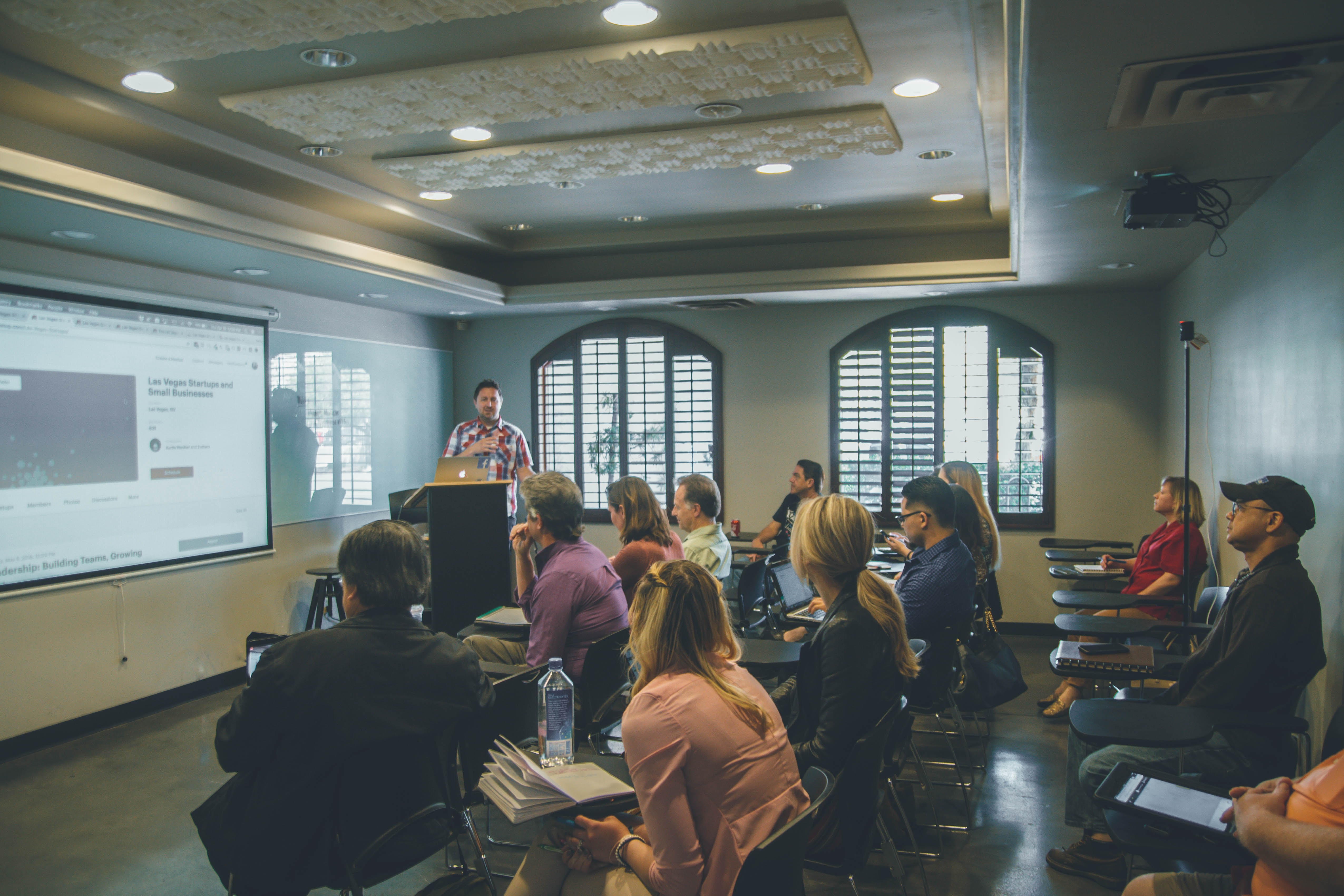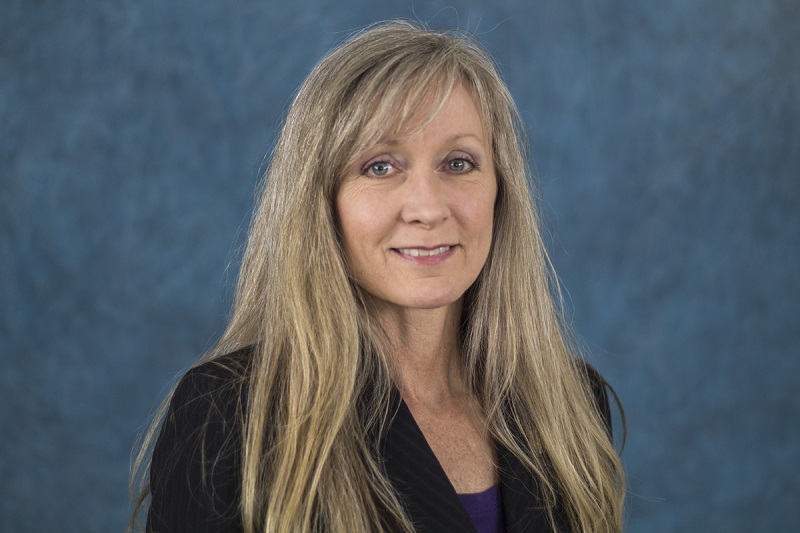Today we welcome Andria Schwegler, Associate Professor and Program Coordinator for the Master of Science Educational Psychology at Texas A&M University – Central Texas. Andria joins us to discuss the Scholarship of Teaching and Learning (SoTL) and the opportunity such scholarship provides for improving education, teaching, and hiring. In addition, she discusses whether there is evidence showing true differences between face-to-face courses and online courses. How can you use research like this to help you in your work? Thank you to Andria for today’s great post!
Enjoy the read and enjoy your day,
Lindsey Downs, WCET
Higher education administrators, faculty, staff, and students have access to more empirical research on human learning today than we have had in our history, but how often and how well is this information being utilized to improve teaching and learning?
The rapidly expanding research base in and immediately related to the scholarship of teaching and learning (SoTL) allows us to reevaluate practices perpetuated by tradition and norms, such as personal philosophies about teaching and lecture-only instructional techniques, to consider how they can be improved upon given current evidence. As such, instead of being limited to tradition or personal experiences and preferences to inform beliefs, attitudes, and behaviors, stakeholders in higher education can harness the research that is available to inform teaching and learning and chart new avenues for scientific investigation.
An Opportunity for Evidence-Based Improvement
 Opportunities to leverage research evidence to improve teaching and learning abound, including a recent definition of academic rigor that is grounded in empirical evidence and can be subjected to continuous improvement. This definition (Schwegler, 2019a) and its location in the higher education context (Schwegler, 2019b) were informed by existing definitions of rigor and an integration with empirical evidence on human learning. This perspective advocates a scholarly, research-driven approach to teaching and demonstrations of learning, consistent with current movements to make teaching and learning more visible. As argued by Hutchings, Huber, and Ciccone (2011), SoTL “is scholarly work, not a bureaucratic requirement” (p. 124). From this perspective, SoTL work is the purview of faculty, but is it being fully utilized to inform efforts to support teaching and learning? Several decisions impacting teaching and learning in higher education may benefit from a reexamination of the type of evidence that is leveraged to inform them.
Opportunities to leverage research evidence to improve teaching and learning abound, including a recent definition of academic rigor that is grounded in empirical evidence and can be subjected to continuous improvement. This definition (Schwegler, 2019a) and its location in the higher education context (Schwegler, 2019b) were informed by existing definitions of rigor and an integration with empirical evidence on human learning. This perspective advocates a scholarly, research-driven approach to teaching and demonstrations of learning, consistent with current movements to make teaching and learning more visible. As argued by Hutchings, Huber, and Ciccone (2011), SoTL “is scholarly work, not a bureaucratic requirement” (p. 124). From this perspective, SoTL work is the purview of faculty, but is it being fully utilized to inform efforts to support teaching and learning? Several decisions impacting teaching and learning in higher education may benefit from a reexamination of the type of evidence that is leveraged to inform them.
Teaching philosophies or scholarly narratives?
Traditionally, teaching philosophies are requested in job applications and promotion and tenure portfolios, but how useful are these anecdotal, idiosyncratic philosophies in making employment decisions and predicting effective teaching practices? Early research by Nisbett and Wilson (1977) documented the “halo effect” and our inability to perceive its influence on decision making. Positive information about a person increases our liking for the individual, and we subsequently evaluate specific attributes in a manner consistent with this global impression. Given that applicants attempt to create positive impressions (e.g., describing affirmations of student learning and love of teaching), this halo effect influences judgments, even though reviewers are not likely to realize it. More helpful for decision making are attempts to control this bias by requesting and rating the quality of research-based information that the applicant will utilize to inform future teaching. As such, subjective teaching philosophies that are irrefutable and undiagnostic can be replaced by objective scholarly narratives that can be assessed based on their scientific merit and potential impact on learning.
Intuition and tradition or research evidence?
In addition to halo effects, psychologists have uncovered numerous cognitive biases, revealing, among other limitations, that we are inaccurate when it comes to inferring how humans learn best. Bjork and Bjork (2011) emphasize that subjective impressions are misleading and summarize difficulties that can be intentionally imposed on learning tasks that result in improved memory. However, humans are not likely to recognize that these difficulties (i.e., learning in multiple contexts, testing memory, spacing practice, interleaving content) facilitate learning given the added work and short-term difficulties they impose. As such, teachers and students are not likely to implement them. Teachers and students would be better served by relying on empirical research in areas such as SoTL and cognitive psychology (i.e., human learning) to guide their work because a reliance on intuition or tradition may undermine efforts to promote learning.
Course modality or course delivery?
Despite the prevalence of online education, some faculty members continue to doubt that online courses can achieve the same student learning outcomes as face-to-face courses. Jaschik and Lederman (2019) in Inside Higher Ed, reported several intriguing figures about faculty impressions of online learning:
- Overall, 32% of faculty members agreed that online courses can achieve comparable student learning outcomes as in-person courses, but 36% of faculty members disagreed with this statement.
- 61% of faculty members with experience teaching online agreed that student learning outcomes achieved in their courses were equivalent across modality (online vs. face-to-face) though 20% disagreed.
- A mere 14% of faculty with no experience teaching online agreed that learning outcomes could be equivalent, whereas 67% disagreed.
This discrepancy suggests that perceptions are heavily influenced by idiosyncratic, personal experiences instead of by research.
Nearly a decade ago, a meta-analysis of studies comparing student learning in online, blended, and face-to-face contexts revealed no significant differences in learning across course modality (Means, Toyama, Murphy, Bakia, & Jones, 2010). Today, a growing body of research corroborates no significant differences exist (National Research Center for Distance Education and Technological Advancements, 2019). That some faculty attitudes are not aligned with this information suggests that concerns regarding course delivery are confounded with beliefs about course modality. Leveraging existing research on teaching and learning and conducting new research to address gaps can clarify how to address concerns with course delivery to facilitate students’ ability to meet learning outcomes instead of assuming course modality is the problem.
It’s Up to Us
Despite the best of intentions, human cognitive processes are fallible and can undermine efforts to promote learning in higher education. Taking a research-based approach to teaching and learning provides a wealth of information to assist stakeholders in this work. As Hutchings et al. (2011) point out, faculty will “find a literature that is far richer than the familiar staple of teaching tips and anecdotes, including systematic studies by faculty investigating teaching and learning in college classrooms and programs” (p. 125).
 A research-based perspective shifts teaching from a subjective, siloed experience to an objective, collaborative one that is focused on student learning with mechanisms in place for continuous improvement. A scientific perspective includes idea generation, data collection, and application of data to idea revision, a process widely used by faculty members in research but, ironically, not typically in teaching. As noted by Hutchings, Kinzie, and Kuh (2015), “Faculty members typically seek out and value the highest quality, most compelling evidence to guide their disciplinary scholarship and practice, but that disposition is exercised far less when it comes to shaping practice in the classroom” (p. 28).
A research-based perspective shifts teaching from a subjective, siloed experience to an objective, collaborative one that is focused on student learning with mechanisms in place for continuous improvement. A scientific perspective includes idea generation, data collection, and application of data to idea revision, a process widely used by faculty members in research but, ironically, not typically in teaching. As noted by Hutchings, Kinzie, and Kuh (2015), “Faculty members typically seek out and value the highest quality, most compelling evidence to guide their disciplinary scholarship and practice, but that disposition is exercised far less when it comes to shaping practice in the classroom” (p. 28).
Challenging this double standard by including scholarly work in one’s teaching activities and, further, including teaching activities in one’s scholarly work allows faculty members to engage in the “lively conversation about what it might mean to undertake college and university teaching as serious intellectual work” (Hutchings et al., 2011, p. 1). A wealth of information is available to craft academically rigorous learning experiences, rethink tradition to create new ways to foster learning, clarify pathways for transfer credit given the multitude of learning opportunities available, and update institutional processes (Schwegler, 2019c) to better reflect what we now know about facilitating learning. But, how often and how well this information is applied to improve teaching and learning is up to us.

Andria Schwegler
Associate Professor, Counseling and Psychology
Program Coordinator, Master of Science Educational Psychology
Texas A&M University – Central Texas
References
Bjork, E. L., & Bjork, R. A. (2011). Making things hard on yourself, but in a good way: Creating desirable difficulties to enhance learning. In M. A. Gernsbacher, R. W. Pew, L. M. Hough, & J. R. Pomerantz (Eds.) Psychology and the real world: Essays illustrating fundamental contributions to society (pp. 56-64). New York, NY: Worth.
Hutchings, P., Huber, M. T., & Ciccone, A. (2011). The scholarship of teaching and learning reconsidered: Institutional integration and impact. San Francisco, CA: Jossey-Bass.
Hutchings, P., Kinzie, J., & Kuh, G. D. (2015). Evidence of student learning: What counts and what matters for improvement. In G. D. Kuh, S. O. Ikenberry, N. A. Jankowski, T. R. Cain, P. T. Ewell, P. Hutchings & J. Kinzie (Eds.), Using evidence of student learning to improve higher education (pp. 27-50). San Francisco, CA: Josey-Bass.
Jaschik, S., & Lederman, D. (2019). 2019 survey of faculty attitudes on technology: A study by Inside Higher Ed and Gallup. Retrieved from https://www.insidehighered.com/booklet/2019-survey-faculty-attitudes-technology
Means, B., Toyama, Y., Murphy, R., Bakia, M., & Jones, K. (2010). Evaluation of evidence-based practices in online learning: A meta-analysis and review of online learning studies. Retrieved from the U.S. Department of Education Office of Planning, Evaluation, and Policy Development https://www2.ed.gov/rschstat/eval/tech/evidence-based-practices/finalreport.pdf
National Research Center for Distance Education and Technological Advancements. (2019). No significant difference. Retrieved from https://detaresearch.org/research-support/no-significant-difference/
Nisbett, R. E., & Wilson, T. D. (1977). The halo effect: Evidence for unconscious alteration of judgments. Journal of Personality and Social Psychology, 35(4), 250-256.
Schwegler, A. F. (2019a, September 12). Academic rigor: A comprehensive definition. [White paper]. Retrieved from Quality Matters website: https://www.qualitymatters.org/qa-resources/resource-center/articles-resources/academic-rigor-white-paper-part-one
Schwegler, A. F. (2019b, October 11). Academic rigor: Contextualizing academic rigor. [White paper]. Retrieved from Quality Matters website https://www.qualitymatters.org/qa-resources/resource-center/articles-resources/academic-rigor-white-paper-part-two
Schwegler, A. F. (2019c, October 25). Academic rigor: Aligning institutional processes to support academic rigor. [White paper]. Retrieved from Quality Matters website https://www.qualitymatters.org/qa-resources/resource-center/articles-resources/academic-rigor-white-paper-part-three

 Opportunities to leverage research evidence to improve teaching and learning abound, including a recent definition of academic rigor that is grounded in empirical evidence and can be subjected to continuous improvement. This
Opportunities to leverage research evidence to improve teaching and learning abound, including a recent definition of academic rigor that is grounded in empirical evidence and can be subjected to continuous improvement. This 
 A research-based perspective shifts teaching from a subjective, siloed experience to an objective, collaborative one that is focused on student learning with mechanisms in place for continuous improvement. A scientific perspective includes idea generation, data collection, and application of data to idea revision, a process widely used by faculty members in research but, ironically, not typically in teaching. As noted by Hutchings, Kinzie, and Kuh (2015), “Faculty members typically seek out and value the highest quality, most compelling evidence to guide their disciplinary scholarship and practice, but that disposition is exercised far less when it comes to shaping practice in the classroom” (p. 28).
A research-based perspective shifts teaching from a subjective, siloed experience to an objective, collaborative one that is focused on student learning with mechanisms in place for continuous improvement. A scientific perspective includes idea generation, data collection, and application of data to idea revision, a process widely used by faculty members in research but, ironically, not typically in teaching. As noted by Hutchings, Kinzie, and Kuh (2015), “Faculty members typically seek out and value the highest quality, most compelling evidence to guide their disciplinary scholarship and practice, but that disposition is exercised far less when it comes to shaping practice in the classroom” (p. 28).

1 reply on “Using a Research-Based Approach – It’s Up to Us”
[…] Using a Research-Based Approach – It’s Up to Us [Schwegler] — from wcet.wiche.edu by Andria Schwegler […]